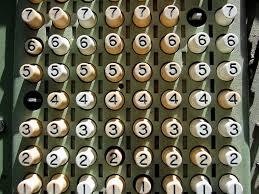I was listening to a CD of an old Joni Mitchell album, and it soon turned out I was playing an awkward historian’s joke on myself. I had got to the song about ‘playing that scratchy rock and roll’, and had then noticed I was listening for the scratch. On that track, though not in the exact place of that lyric, on my father’s copy of the record, there had indeed been a scratch. The record didn’t stick, nor did it jump, at that point; but we’d got so used to listening to it with the scratch that now, hearing it on any other media, or even another copy of the record, seemed peculiar: something was missing. The crackle of the static was not consistent – a wipe-down with a slightly moist cloth would do the trick of holding that off for a couple of playings. But scratches were there to stay; I have the record now, one of several that I have consciously stolen from my father, with his (almost-)consent; and I still play it often enough to restore my equanimity when the missing scratch would otherwise bother me too much.
Being perfectly aware that CDs are obsolete technology now, and noting the resurgence of the record, now dignified by the name ‘vinyl’, and evoking bearded hipsters munching vegan kebabs, I thought to myself that these sensations would now return to a new generation, who, I can see from cursory glances at their record-playing regimen, are not all adept at using them. We had learned (I was twelve before my father would teach me) to slide the record on to the hand from the sleeve, touching only the label at the centre and the edge, and then to use both hands on the edge to place it on the turntable. Fingers on the surface were a terrible way to take a record out of its sleeve, causing fat to gather in the grooves, eventually creating physical blockages for the needle. Not everyone has worked that out yet; certainly not many of the bearded ones poking around for a re-pressed moment of physical vinyl in a record-shop – but the shop-owners, usually old enough to know better, are also usually too polite to say anything.
Every now and then, we read a nostalgic piece or two on lost soundscapes. Entering an office of any description meant listening to the sounds of a typewriter. A telex machine in another corner was printing off information from somewhere or other that one would use, tearing the roll of paper off at relevant points. A fax would be arriving at another desk, printing itself on waxy rolls of paper that would eventually, in a few months or a year or two at the most, become invisible. If you turned on the radio, you would sometimes catch the odd Morse code transmission, and if you’d been paying attention in school, you might find out what someone was saying, because you were one of the geeks who’d memorised the code. (We were taught Braille as well, but I don’t recall getting very far in memorising that, probably because sighted people were taught Braille as dots on a flat printed page, and that’s not what it was meant for).
Historical analogies are never perfect because they do not cross times and spaces well. And history is itself full of sounds we can no longer make sense of. We try, in most cases, to ignore them and to listen to what we can understand. Perhaps we are not trained to these frequencies, not attuned to certain expectations or hazards. If you did not know there would be open manholes into the sewers on a monsoon-flooded street in Calcutta, you’d probably not have been treading cautiously enough to avoid disappearing into one. And if, some years after these were most people’s lived experiences, no one knew how to dial a number with the circular things on the fronts of those giant monsters once called telephones, the sounds associated with them could hardly be deciphered by anyone unaccustomed to old or period films.

But if historians listen only to what still makes sense to them, we edit the past to make sense of the present, and we are largely disinterested in the noises that we can find no signal in, at least at first. Many historians still write as if they are absorbing the real thing untainted from the sources; others insist that we can only construct narratives with no truth-value other than truth-claims from the same sources, and that the past can only be about its meaning in the present; but I suspect both warring parties are listening with not dissimilar noise-cancellers. And sometimes, at least, the noise is the message. But since we haven’t the ear for them anymore, we gravitate towards the easily-intelligible, or apparently so, messages that we can read and collate with what we know already. If what we can know are at best a few scratches on the historical record, and we have to fill in the gaps with jumps of logic and imagination, we could, at least, begin to try and understand the scratches that we have, including those we might be tempted to pass over as forgotten Morse code noises there by accident.
But perhaps those who cannot assume that the worlds they write about are similar to those they inhabit are better positioned to listen. The ancients were not entirely ‘just like us’: we recognise in our social media behaviour their glee for gladiatorial combat or their tendency to revel in the killing of a bear or a bull by men and other animals, but we need to work harder to understand their language, their habits, and their self-evident implicit norms. We cannot understand their jokes without explanation. The entirely unfunny avocation of the professional medieval-joke-explainer can be fruitfully seen as the ideal typical historian’s lifeworld. We find our pictures not just in what we can explicitly read, but in the noises we can (if we’re lucky or properly trained) still hear, but cannot make sense of. That’s as synaesthetic a mixed metaphor as anyone is likely to be capable of.
Images courtesy: Pxhere & Thespaceink



























